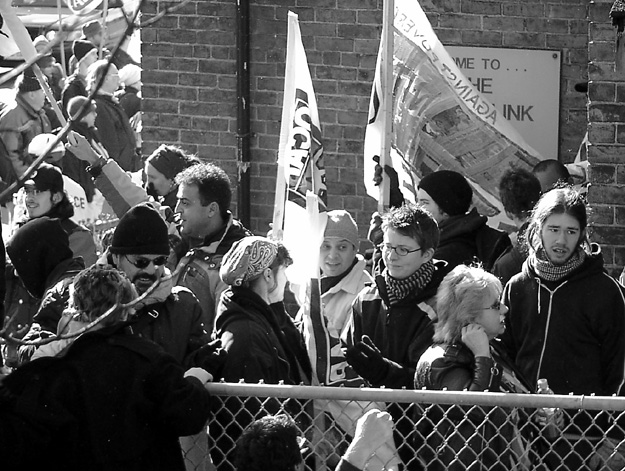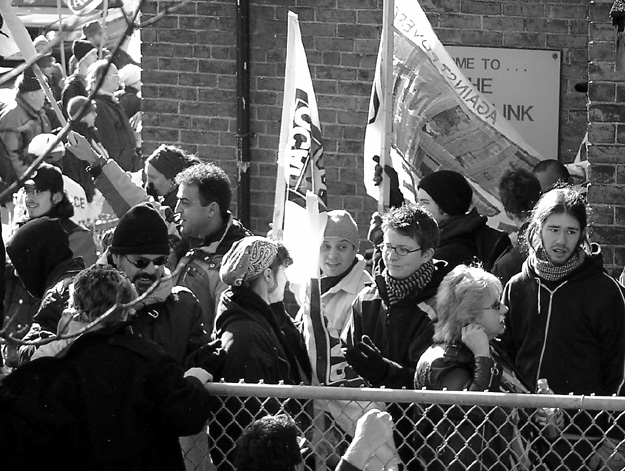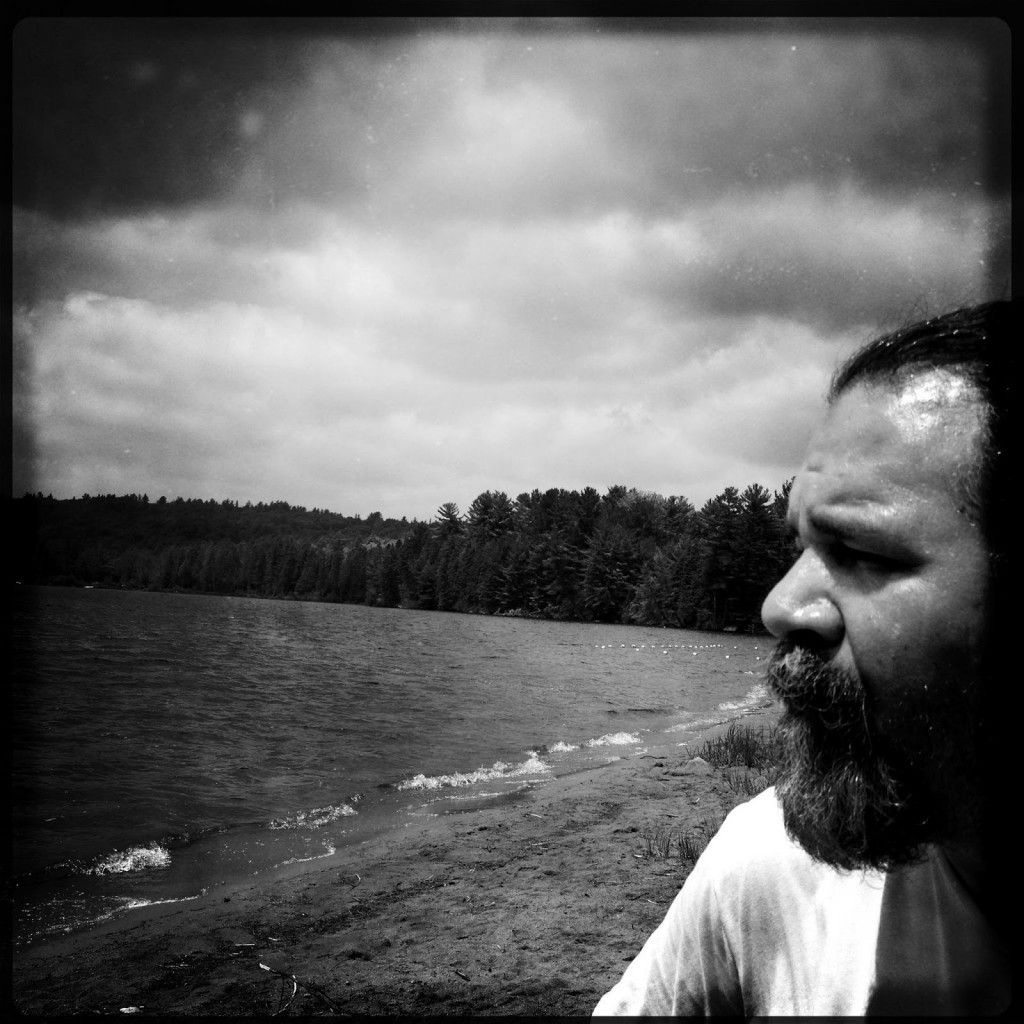By Mick Sweetman
Managing Editor
Some people choose to live on the streets of Toronto throughout the winter.
That’s right, I said they choose to live on the streets. But the choice they make is a Hobson’s choice between the overcrowded, bed bug infested and dangerous conditions of the city’s shelter system or the hard, cold streets.
John Clarke from the Ontario Coalition Against Poverty (OCAP) posted a photo on twitter snapped by a shelter worker in February showing what he says is blood on a wall inside Seaton House.
On Feb. 15, Clarke and about 50 other anti-poverty protesters set up what they called an “emergency shelter” in front of Mayor Rob Ford’s office. The protesters were demanding that City Council reverse a 2.9% cut to shelters in the 2013 budget. I’m no stranger to OCAP’s actions having been active with them myself over a decade ago. Sadly, the conditions for the poor in Toronto have only gotten worse.
One of the first people I ran into in front of Ford’s office was Gian Mura, 71, who survives on his old age pension and considers himself “one of the lucky ones” because he lives in a subsidized bachelor apartment in Parkdale.
Sitting in one of the few chairs outside the mayor’s office Mura spoke with a smile and a slight French-Canadian accent, “I slept on the street. I slept in a $50 vehicle that I bought to park somewhere and sleep in. I stayed away from shelters because they’re not a healthy place to sleep. But in the winter, if you don’t have those shelters you die of pneumonia. I became very sick a couple of times.”
On Feb. 9 another name, Stewart Poirier, was added to the Homeless Memorial outside the Church of the Holy Trinity bringing it to 700 people that have died on the streets since 1985.
“I knew a few of them, that’s what’s so fucking sad about it. A guy died who I knew for years, and is really well known in the east end community. It’s really sad,” said Zoe Dodd, a harm-reduction worker in the downtown east. “His street name was Frizz. Frizz was 47 years old. He was really sick; he was discharged from an agency that he’d been staying at. When they discharged him he went back out on the streets. He just didn’t have a chance. You can’t get healthy outside.”

Robert Chrysler, bottom left, helps open the “Gatekeeper squat” with OCAP on Nov. 8, 2003. Photo: John Bonner
Like Dodd, I too knew some of them. One of them was my friend Robert Chrysler, who I hadn’t seen in years when I heard he died last October. I knew Rob had a long history of battling drug and alcohol additions but also his resilience working his job as a bicycle courier through Toronto’s winter streets delivering prescription medication to people unable to leave their homes. He was active in OCAP at the same time I was, struggling not only to survive personally but also to make life better for everyone.
As people chanted “no more homeless deaths” as they were lead out of City Hall in handcuffs, I remembered when Rob would have been right there with them.



